Share your phone number with us, we'll call you!
Share your phone number with us, we'll call you!
Need Premium Dental Crown in Turkey? Get a bespoke smile with our latest tech. We can copy your chosen design or create a new one. You have complete control over the final result.
Share your phone number with us, we'll call you!
The cost of dental crowns in Turkey ranges from $120 to $350 per tooth, determined by the material, clinic, and treatment intricacy. Dental crowns are custom renovations that protect and rebuild compromised teeth. Popular materials include zirconia, E-Max, and porcelain-fused-to-metal, used in Turkey teeth crowns for cosmetic and functional purposes. The dental crowns in Turkey are more affordable than in the UK or USA, while maintaining high standards of care, advanced technology, and internationally trained professionals. The dental crown cost in Turkey offers excellent value for patients seeking premium results at a lower price. Key factors impacting the final Turkey teeth cost include the type of crown material, dentist expertise, clinic location, number of crowns needed, and additional treatments like root canals or extractions. Aftercare services, laboratory fees, and clinic accreditation influence the total cost.
A dental crown cost in Turkey ranges from $120 to $350 per tooth, depending on the material used, such as zirconium, porcelain-fused-to-metal, or E-max, the clinic's reputation, and the city. The average cost of Dental Crowns in Turkey is listed below.
Turkey combines advanced dental technologies, highly skilled dentists, and state-of-the-art clinics, offering significant savings compared to prices in Western European countries, the UK, and the USA. Patients can receive premium treatments while benefiting from cost-effective solutions, making Turkey an ideal choice for anyone considering dental treatments price in Turkey .
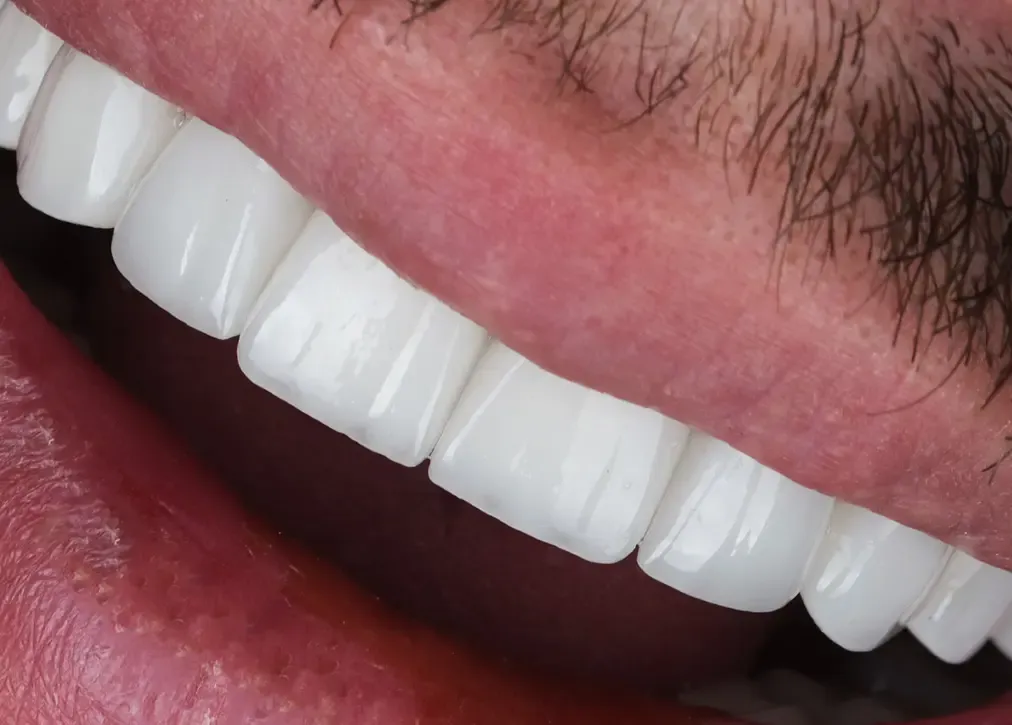
Choose Turkey for dental crowns because it offers premium treatment at a fraction of the cost of the UK, US, or Mexico. Clinics in Turkey charge $120 to $350 per crown based on materials and location, making it one of the most affordable global options. Dental centres uphold high standards, using modern technologies such as Computer-Aided Design and Computer-Aided Manufacturing (CAD/CAM) systems and ISO-certified equipment.
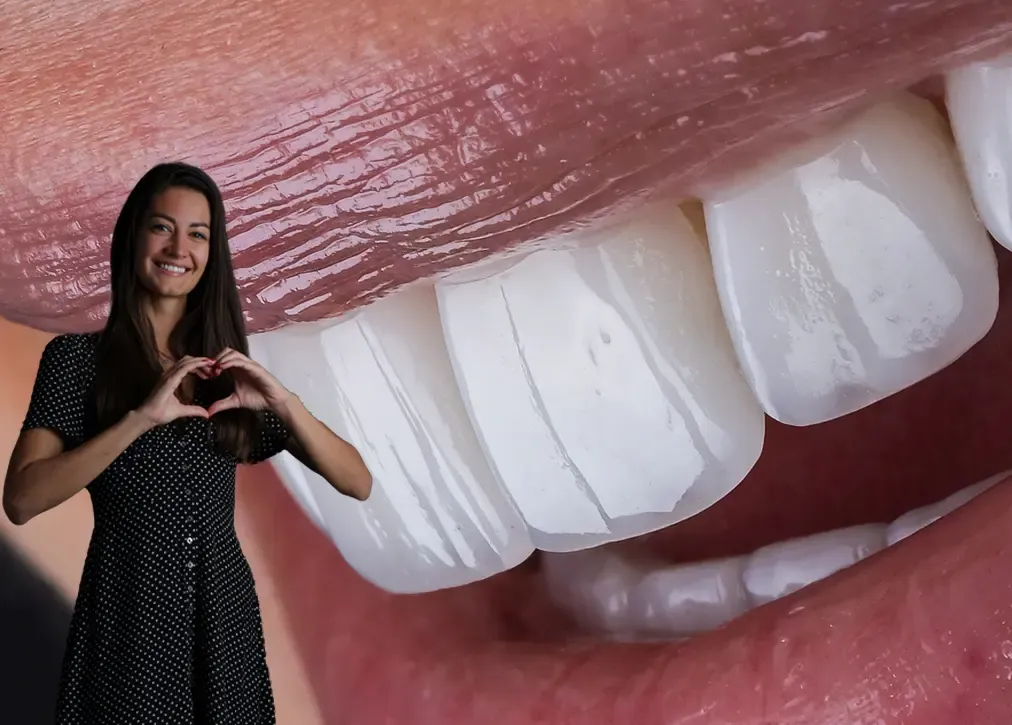
Dentists in Turkey possess international training and adhere to European medical protocols, ensuring safe and reliable procedures. Major clinics feature English-speaking staff and services like airport transfers, hotel stays, and aftercare support. Istanbul, Antalya, and Izmir offer high-quality dental care, convenient access, and tourism opportunities, making them popular for Turkey teeth procedures. To witness the exceptional results and quality offered by Turkish dental clinics, many patients review Turkey teeth before after photos.
Turkey offers superior infrastructure and lower prices than Mexico for similar or better-quality materials. Turkey achieves equal or superior clinical outcomes to the UK and USA while cutting costs by 70% to 90%. The affordability, safety, and comfort of Turkey Teeth Crowns position the country as a leader in global dental tourism.
Turkey offers world-class dental crowns made from top-tier materials like zirconia and E-Max. Turkey has established a reputation for government support for medical tourism and high patient satisfaction, making it a preferred destination.
The factors affecting the cost of a dental crown in Turkey are listed below.
Understanding what is dental crown helps patients make informed decisions about their dental treatments in Turkey. A dental crown is a custom-made covering that fits over a damaged or weakened tooth, restoring its shape, size, strength, and overall appearance. Crowns are typically recommended for teeth with extensive decay, cracks, or after root canal therapy, protecting the tooth from further damage while improving its aesthetics and functionality. Selecting the right dental crown type is crucial, as it directly influences both the longevity of the restoration and the overall cost of the procedure.
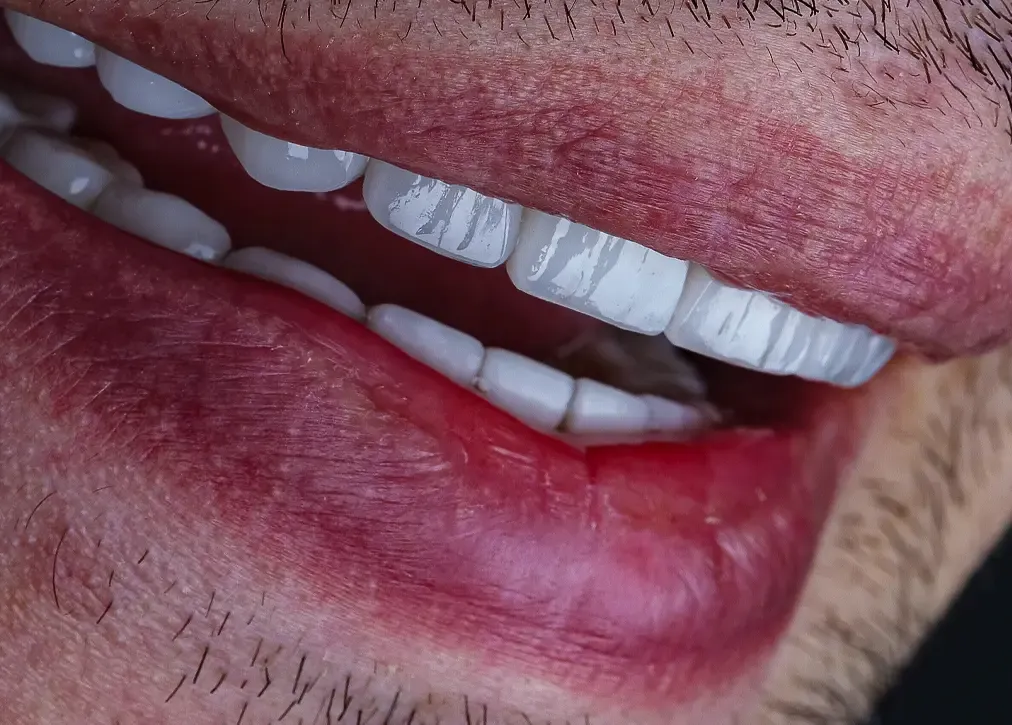
The type of material chosen for the dental crown influences the price of the operation. Each material possesses distinct properties, aesthetics, and manufacturing processes, impacting the quality and expense of the crown.
Traditional porcelain crowns give the impression of being natural and are suitable for front teeth. They are a cost-effective option, but they lack the strength of other materials. Zirconium crowns are known for their durability and natural look. They involve a more intricate manufacturing process, contributing to a higher cost than porcelain. E.MAX© crowns belong to the premium category, made from lithium disilicate glass-ceramic. They provide outstanding durability and looks that justify their higher cost.
The cost variation is due to the materials' quality, aesthetics, and production complexity. Premium materials such as E.MAX© involve advanced techniques, contributing to a higher expense. Patients choose based on budget constraints and desired outcomes, balancing cost and quality. When considering dental restorations, understanding the types of dental crowns available is crucial to achieving optimal oral health and aesthetic outcomes. Each crown type varies in material, durability, appearance, and price, catering to different dental needs and patient preferences. By consulting with a dentist, patients can determine the most suitable type of dental crown based on factors such as location in the mouth, desired aesthetics, longevity requirements, and budget, ensuring a healthy, functional, and attractive smile.
The geographical location within Turkey where a dental clinic is situated is a significant factor that affects the price of dental crowns. Different cities have variations in living costs, overhead expenses, and economic factors, leading to diverse pricing structures for dental services.
Dental treatments, such as crown procedures, are more affordable in Antalya than in major cities such as Istanbul or Ankara due to differences in living expenses. The location factor intersects with the concept of dental tourism, as certain cities attract international patients seeking cost-effective yet high-quality dental care. The particular location of a dental clinic within Turkey is integral to understanding and assessing the expenses associated with dental crown treatments.
The expertise and reputation of a dentist in Turkey refer to their skill level, experience, and perception of their professional standing within the dental community and among patients.
The price of dental crowns in Turkey varies depending on the dentist's reputation and level of expertise. Clinics with highly skilled and renowned dentists charge higher fees for their services. Patients must be willing to pay a premium for the assurance of receiving quality care from a dentist with a proven track record.
Experienced dentists with a strong reputation are likely to have advanced skills in cosmetic dentistry and dental restoration, ensuring a high level of precision and aesthetic appeal in crown placement. Their expertise contributes to the success of the procedure, and patients perceive the additional cost as an investment in superior dental care.
Reputable dentists invest in continuous education, staying updated on the latest technologies and techniques. The commitment to excellence results in higher costs but leads to more advanced and effective dental crown procedures.
The expertise and reputation of a dentist influence the cost of dental crowns in Turkey by reflecting the perceived value of their services. Patients must choose a dentist based on their reputation for delivering exceptional results, and the selection impacts the expenses associated with the dental crown procedure.
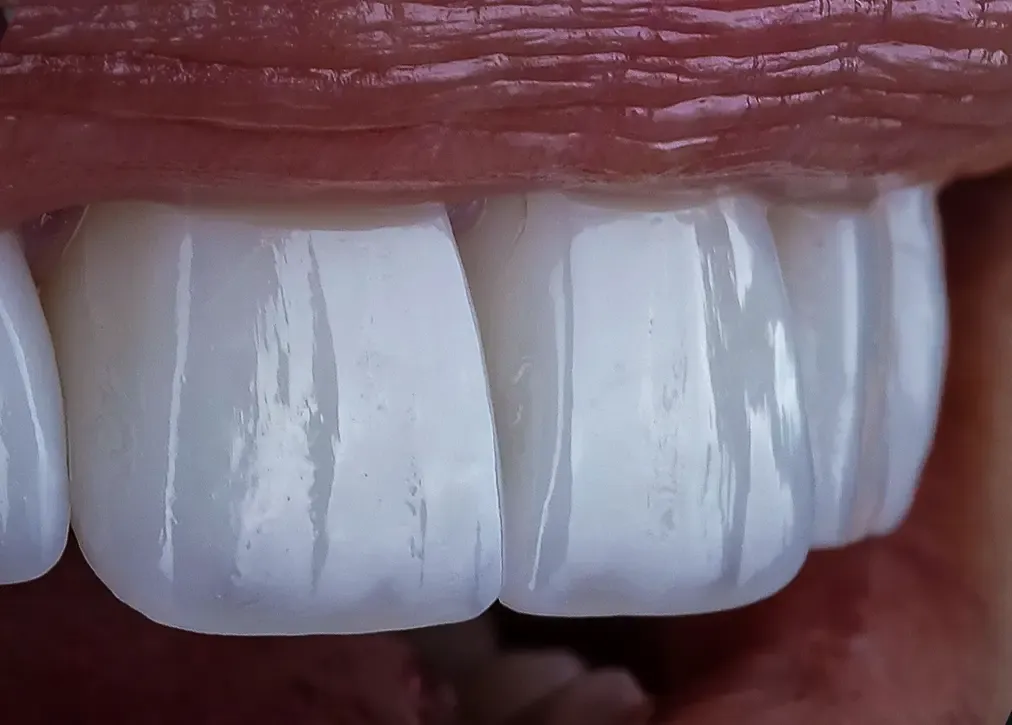
A dental clinic's perceived prestige and standing within the industry, patient feedback, clinic accreditations, years of experience, success rates, and recommendations from others are all important factors to consider.
A reputable clinic often invests in advanced technologies, employs highly skilled professionals, and maintains stringent quality standards, contributing to higher overhead costs. Patients pay a premium for the assurance of receiving top-notch services, advanced treatments, and a positive overall experience. The clinic's reputation reflects its commitment to excellence, which influences pricing strategies.
The complexity of the procedure refers to the intricacy and difficulty involved in the dental crown procedure. It takes into account the level of damage or misalignment of the teeth, the need for additional treatments, and the challenge of achieving the desired outcome.
The degree of tooth damage, the presence of underlying dental conditions, or the requirement for additional dental procedures before or during crown placement all affect how complex a case is.
A more complex case demands additional time, expertise, and resources from the dental team. Complex procedures involve multiple visits, specialised techniques, or supplementary treatments, all contributing to an increase in the cost of dental crown placement. The intricacies of complex cases require careful attention and precise execution, affecting the total expenses associated with the dental crown procedure.
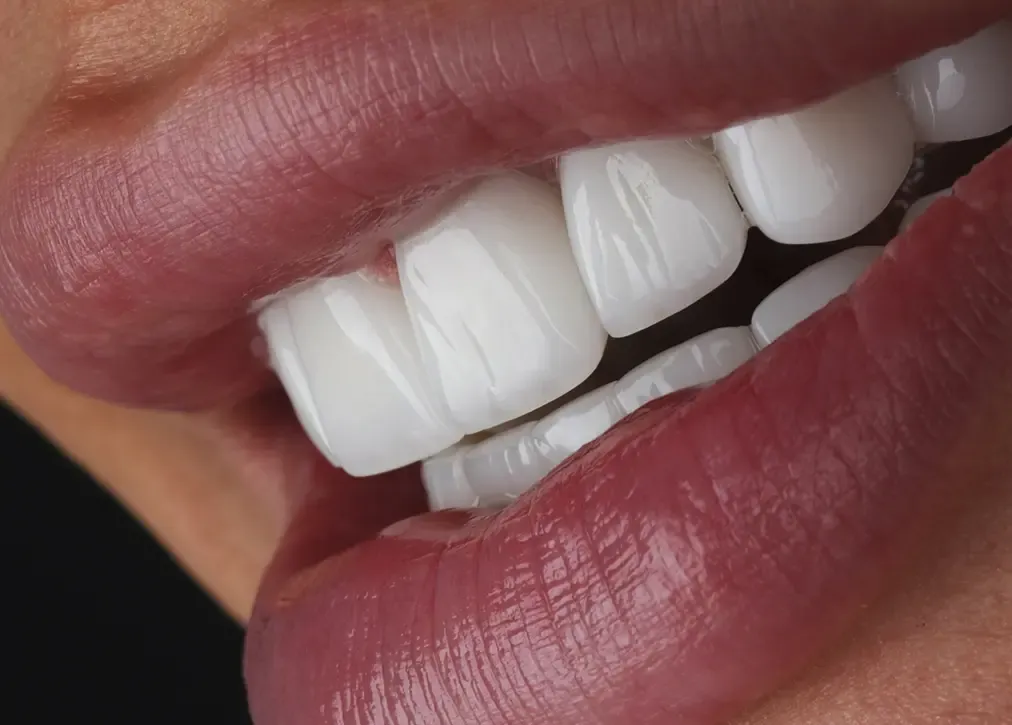
The number of crowns needed refers to the number of crowns necessary for a specific patient. The degree of tooth damage, the presence of multiple affected teeth, or the desire for a thorough cosmetic enhancement determine it.
The factors influencing the number of crowns needed include the severity of dental issues, the extent of aesthetic improvements desired, and the oral health condition. Patients require a single crown for a damaged tooth or multiple crowns for various cosmetic or functional reasons.
The quantity required directly affects the cost of dental crowns. Multiple crowns entail additional material costs, labour, and time. Each crown is individually crafted and customised, contributing to the expense. The complexity of managing multiple crowns requires advanced techniques or specialised procedures, further impacting the cost of dental crown treatment.
Insurance coverage is a measure of the financial stability that a dental insurance programme provides for different treatment options, such as dental crown procedures. The policy's terms and conditions specify the insurer's financial responsibility for certain expenses.
Dental insurance coverage significantly influences the cost of dental crowns. Patients with comprehensive insurance plans experience a substantial reduction in out-of-pocket expenses. The coverage varies, but it includes a portion of the total expense or a set amount for specific procedures. Patients with insurance are inclined to pay less for dental crown treatments, making it a more financially feasible option for them. Insurance coverage incentivizes consumers to promptly seek dental care, addressing any issues before they worsen and necessitate more comprehensive and costly procedures. The presence of coverage for dental care greatly influences the financial responsibility that patients bear when undergoing procedures such as dental crowns.
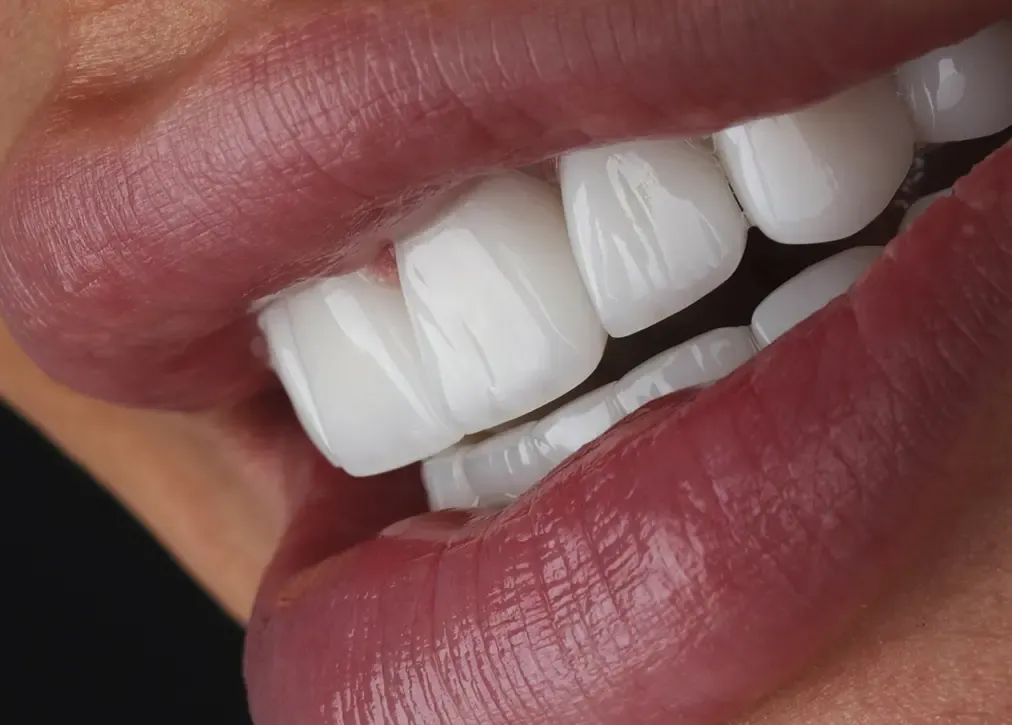
Material quality refers to the type and grade of materials used in the fabrication of the crown. Different materials, such as porcelain, zirconium, E.MAX©, metal alloys, and others, vary in quality, durability, and aesthetic properties.
Material quality is a crucial factor influencing the cost of dental crowns in Turkey. The choice of crown material significantly impacts the functional and aesthetic aspects of dental restoration.
The cost of dental crowns in Turkey is intricately tied to the varying factors associated with different materials. Premium materials such as E.MAX© or high-quality zirconium tend to incur higher costs compared to standard porcelain or metal options. The cost discrepancy is directly reflected in the total price of the dental crown.
The choice of material significantly influences several aspects of dental restoration. Higher-quality materials provide superior aesthetic results and contribute to the total cost, especially for patients seeking a natural and aesthetically pleasing appearance. Premium materials come with enhanced durability and longevity, offering a potential cost-saving factor in the long run as they necessitate less frequent replacement or maintenance.
The position of the dental crown in the mouth and the particular dental issues it addresses are two important factors that have a significant impact on functionality, which is another important aspect of material selection. The material choice for the molars, which are subject to greater biting forces and have advantages over longer-lasting materials, is one factor that affects a crown's cost.
Patient preferences contribute to the cost dynamics. Some patients have specific material preferences based on factors such as biocompatibility, metal allergies, or a desire for a more natural look. Accommodating these preferences influences the cost of the dental crown, as the chosen material aligns with individual patient needs and aesthetic considerations.
Material quality directly affects the cost of dental crowns in Turkey by influencing the price of the materials themselves and determining the aesthetic, functional, and longevity aspects of the dental restoration. Patients choose materials based on a combination of preferences and budget considerations.
Additional costs refer to supplementary dental treatments or interventions required alongside the dental crown placement. The procedures include root canals, gum treatments, or other dental work necessary to ensure the success and longevity of the dental crown.
The need for additional procedures impacts the cost of dental crowns. The extra procedures add complexity and time to the process if a patient requires treatments such as root canals or gum procedures before getting a crown. The procedures demand additional materials, expertise, and resources, leading to an increase in the total cost of dental crown treatment. The specific requirements for additional procedures depend on individual oral health conditions and are determined during the initial consultation and assessment by the dentist.
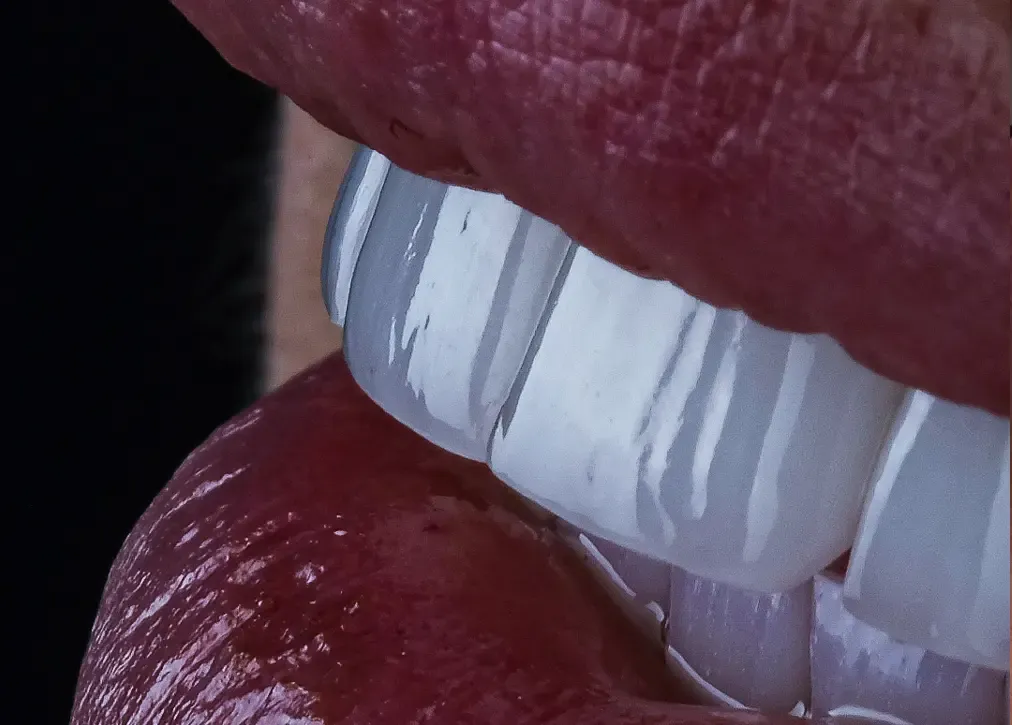
Exchange rates refer to the relative value of one country's currency relative to another country's. The out-of-pocket costs that foreign patients incur for dental crowns in Turkey are significantly influenced by the currency exchange rates. The factor represents the fluctuating value of foreign currencies concerning the local currency, the Turkish Lira.
The impact of exchange rates on dental crown costs is significant for individuals paying in a currency other than the Turkish Lira. The cost of dental procedures, including dental crowns, varies accordingly as the exchange rates between their home currency and the Turkish Lira change. It implies that the same dental treatment costs more or less in the patient's home currency, depending on the prevailing exchange rates.
People contemplating dental procedures in Turkey must become vigilant observers of exchange rate trends. Awareness of these price fluctuations helps individuals anticipate and understand potential changes in the cost of dental crowns, allowing for informed financial planning. Individuals looking for affordable dental care overseas have to take into account the financial aspects of exchange rates.
No, insurance does not cover dental crowns in Turkey. Dental crown procedures in Turkey are not covered by health and dental insurance policies that are offered by international companies. The nature of insurance policies and the lack of international agreements with Turkish private clinics make it challenging for these clinics to be directly affiliated with global insurance providers. Insurance policies vary significantly from country to country, and the coverage for dental procedures abroad is limited.
The majority of the time, foreign insurance doesn't cover crowns in Turkey, but because dental care is so affordable there, a patient is able to receive high-quality care from specialists with a lot of experience, along with high-quality supplies and cutting-edge facilities. The cost-effectiveness of dental treatments in Turkey makes these services accessible to a broader range of individuals, despite the lack of direct insurance coverage.
Check the specific terms and coverage details of the insurance policy if the individual has dental insurance. There are out-of-pocket expenses associated with procedures that are not covered by dental insurance, even though their insurance covers some of them. Be aware of these potential costs and plan accordingly when considering dental crowns in Turkey.

The alternatives to dental crowns in Turkey are dental veneers and dental bonding. Achieving a confident and radiant smile significantly impacts one's self-esteem and well-being. The two prominent alternatives to dental crowns have their own unique benefits and ideal use scenarios.
Choosing between dental bonding and veneers in Turkey depends on the extent of the changes needed, with bonding being a more conservative option for minor aesthetic issues and veneers suitable for more substantial smile transformations. Each method provides unique benefits, allowing individuals to achieve their desired smile enhancements effectively.
Dental bonding involves the application of a pliable, tooth-coloured resin to enhance the appearance of a tooth. The resin is sculpted into shape and cured with a high-intensity light, creating a bond with the tooth. Bonding is a minimally invasive procedure, making it an excellent choice for small changes in a generally healthy mouth. Its benefits include being less expensive than many other cosmetic procedures, requiring no downtime, and often being completed in a single visit.Bonding is ideal for addressing dental issues such as cracked or chipped teeth, changing tooth shape, closing small gaps, improving tooth discolouration, and filling cavities without silver amalgam fillings.
Porcelain veneers are ultra-thin shells custom-made to cover the front surface of a tooth. The veneers, crafted to look exceptionally realistic, bond to the tooth's surface using a strong dental adhesive. Porcelain veneers differ from bonding in that they possess inherent hardness, and dentists shape the original tooth to accommodate the veneer. Veneers offer a beautiful, uniform smile with a realistic sheen, and their porcelain material does not stain. They have a longer lifespan, up to 20 years, making them suitable for patients requiring more significant changes. Veneers are effective for addressing severe stains, discolouration, cracked or chipped teeth, large gaps, crooked teeth, overlapping teeth, and worn teeth. Dental crowns and veneers are crafted from durable materials, such as porcelain or ceramic, to give them a natural appearance. Determining whether dental crowns or veneers are more suitable depends largely on the patient's specific dental conditions, aesthetic goals, and desired longevity of the treatment.
When a tooth is extensively damaged or missing, dentists often recommend restorative solutions like dental crowns or bridges. Dental crowns act as protective coverings, fully enclosing and reinforcing the damaged tooth, restoring its strength, function, and appearance. Alternatively, dental bridges replace one or more missing teeth by bridging the gap with artificial teeth anchored securely to adjacent natural teeth, ensuring improved oral function and aesthetics.
No, it is not expensive to get a dental crown in Turkey. The cost of dental crowns in Turkey starts at only £140 compared to other countries, making it a cost-effective option for individuals seeking quality dental care. The affordability of dental crowns in Turkey is attributed to various factors.
The combination of a lower cost of living, favourable currency exchange rates, and a thriving medical tourism industry makes getting a dental crown in Turkey a cost-effective option without compromising on the quality of care.
The lower cost of living in Turkey plays a significant role. Operational expenses for dental clinics, such as rent, utilities, and salaries, are comparatively lower, allowing them to offer services at a more affordable price point.
The currency exchange rate is favourable for international patients. The Turkish Lira's exchange rate against other currencies contributes to the cost-effectiveness of dental treatments in the country.
Turkey has established itself as a hub for medical and dental tourism, attracting a considerable number of international patients. The high demand for dental services allows clinics to optimise their processes and achieve economies of scale, further contributing to cost savings that are passed on to patients.

Yes, dental crowns in Turkey are worth investing in. The cost savings are significant, with dental crowns being approximately 70% less expensive in Turkey compared to Europe or the US. Dental crowns made in Turkey are just as good as any other, but they are much cheaper.
Choosing a certified and accredited clinic is crucial for ensuring a good investment. Accredited clinics adhere to stringent quality standards, ensuring that patients receive professional and reliable dental care. The certification is an assurance of the clinic's commitment to maintaining high-quality services, using top-notch materials, and employing skilled professionals.
The cost-effectiveness of dental crowns in Turkey is an important consideration, but one must think about the advantages in the long run. Dental crowns improve a person’s oral health, restore the functionality of damaged teeth, and enhance the aesthetic appearance of their smile. Dental crowns in Turkey are a lifesaver for some people, depending on their circumstances.
Conduct thorough research and gather information from reputable sources to make an informed decision. Save money and get high-quality dental care that benefits one’s health in the long run at a certified clinic.